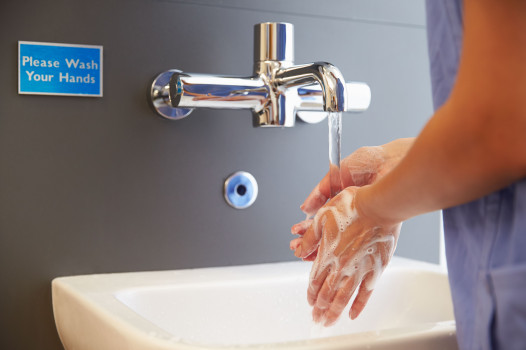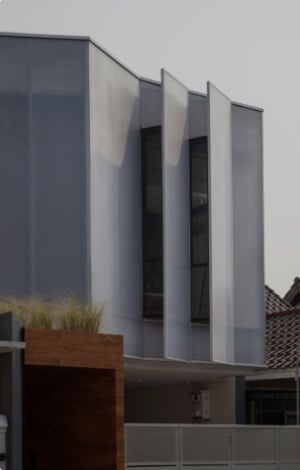Roof Tiles Ultimate Guide: Types, Benefits, and Maintenance



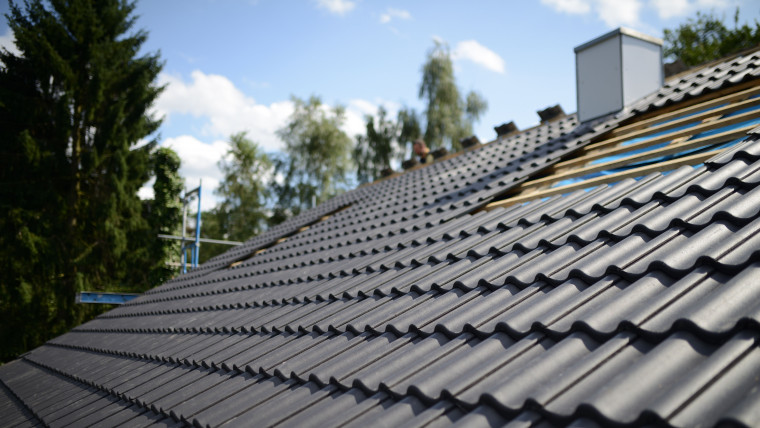
When it comes to roofing materials, roof tiles have been a timeless choice for homeowners all around the world. Roof tiles not only offer protection from the elements but also contribute to the aesthetic appeal of your home. We will investigate various aspects of roof tiles, including which types are best for rooftops, their purpose, materials, waterproofing capabilities, lifespan, strength, and the numerous benefits they bring to your project.
What is the Purpose of a Tiled Roof?
The primary purpose of a tiled roof is to protect your home from the elements. Roof tiles offer insulation against heat and cold, reducing energy consumption. They also prevent water infiltration, which can lead to structural damage and mould growth. Additionally, tiled roofs enhance the curb appeal of your property, adding value and aesthetic charm.
Which Tiles are Best for Rooftops?
The choice of roof tiles largely depends on your climate, budget, and design preferences. Here are some popular options for types of roof tiles:
- Clay Roof Tiles: Clay roof tiles are known for their timeless beauty and roof tile durability. They come in various shapes and colours, making them an excellent choice for a wide range of architectural styles. Clay tiles are especially suitable for warm, dry climates.
- Concrete Roof Tiles: Concrete roof tiles are an affordable and versatile option. They can mimic the appearance of clay, slate, or wood while providing good insulation. Concrete tiles are suitable for most climates and offer excellent longevity.
- Slate Roof Tiles: Slate roof tiles are the epitome of elegance and luxury. They are natural stone tiles that can last for centuries and are impervious to fire and rot. Slate tiles are ideal for areas with heavy rainfall or snowfall.
- Metal Roof Tiles: Metal roof tiles, often made from steel or aluminium, are lightweight, durable, and energy-efficient. They are suitable for various climates and can mimic the appearance of other roofing materials.
BMI offers a range of different options when it comes to Roof Tiles and other roofing materials. See their full product range here.
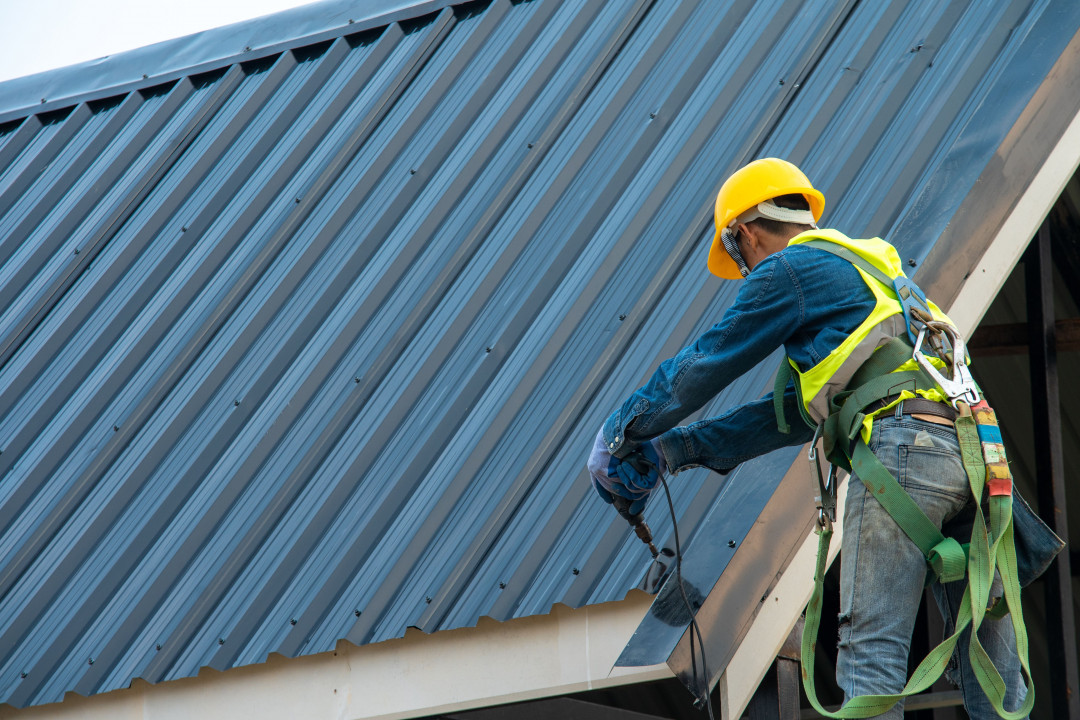
Roof Tile Benefits
Using roof tiles offers a range of benefits:
- Longevity: Roof tiles are known for their exceptional lifespan, often lasting for several decades or even centuries, making them a cost-effective choice in the long run.
- Aesthetic Appeal: Roof tiles come in various colours, shapes, and textures, allowing you to enhance the visual appeal of your home and create a unique style.
- Energy Efficiency: Many roof tiles, particularly clay and concrete tiles, provide insulation, helping to regulate indoor temperatures and reduce energy costs.
- Low Maintenance: Roof tiles require minimal roof tile maintenance, with occasional inspections and replacement of damaged tiles being the primary upkeep tasks.
- Weather Resistance: Roof tiles are designed to withstand extreme weather conditions, providing reliable protection for your home.
- Eco-Friendly: Some roof tiles are made from sustainable materials, and they can be recycled at the end of their lifespan, reducing environmental impact.
What Material is Used for Roof Tiles?
Clay tiles: These are crafted from natural clay and fired at high temperatures.
Concrete tiles: Concrete roof tiles are made from a mixture of cement, sand, and pigments.
Slate tiles: Slate tiles are quarried from natural stone deposits and cut into thin, flat pieces.
Metal tiles: Metal roof tiles are typically made from steel, aluminium, or other alloys.
Are Roof Tiles Waterproof?
Yes, roof tiles are designed to be waterproof. The materials used in making roof tiles, such as clay, concrete, and slate, are inherently water-resistant. Additionally, the overlapping installation pattern of roof tiles forms a protective barrier that prevents water from seeping through. However, it's essential to ensure proper installation to maintain their waterproofing capabilities.
How Long Will Roof Tiles Last?
Have you ever wondered how long your roof tiles will hold up? Well, you're not alone. When it comes to roofing, durability is a big deal. Roof tiles, with their classic charm, are a popular choice for homeowners and builders. But, like everything else, they age with time, and nature can be quite relentless. Whether you're a homeowner thinking about the future or a pro in construction, knowing how long your roof tiles will last is crucial to keep your home safe and looking great. Proper maintenance and regular inspections can extend the life of your roof tiles.
The lifespan of roof tiles varies depending on the material:
- Clay tiles: 50 to 100+ years
- Concrete tiles: 30 to 50+ years
- Slate tiles: 75 to 100+ years
- Metal tiles: 40 to 70+ years
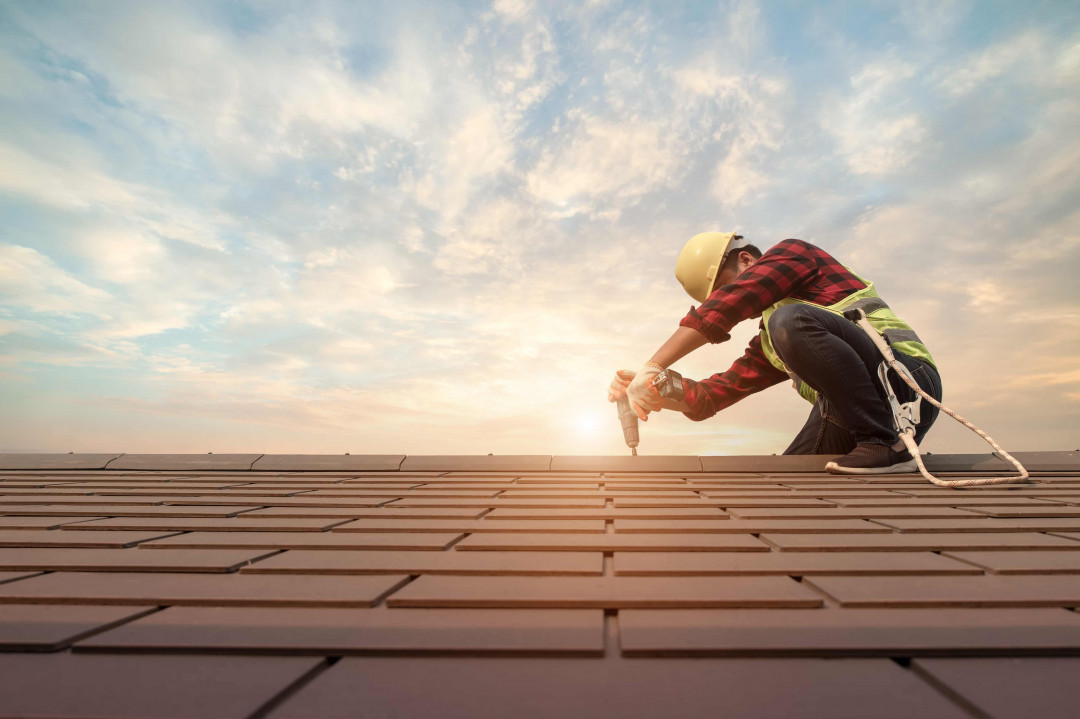
Considerations When Choosing Roof Tiles
When it comes to choosing roof tiles, several crucial considerations should guide your decision-making process. The type of roof tiles you select can significantly impact not only the aesthetics of your home but also its durability, energy efficiency, and maintenance requirements. Here are some key considerations to keep in mind
Climate: Consider your local climate and weather conditions. Some tiles are better suited for specific climates, such as clay tiles for dry climates and slate tiles for areas with heavy rainfall or snowfall.
Budget: Determine your budget for roofing materials and installation. Different types of tiles come with varying price points, so it's important to find an option that meets your financial constraints.
Aesthetic Preferences: Your roof should complement the architectural style of your home. Explore different tile shapes, colours, and textures to find a look that enhances your home's curb appeal.
Longevity: Evaluate the expected lifespan of the tiles and factor this into your decision-making process. Investing in high-quality, durable tiles can save you money in the long run.
Maintenance: Consider how much maintenance you're willing to undertake. While most roof tiles are low-maintenance, some may require more attention than others.
Roof Tile Maintenance
When it comes to roof tile maintenance, adopting a proactive maintenance approach can make all the difference in maintaining its aesthetic charm and structural integrity. Roof tiles, with their diverse materials and distinctive characteristics, require tailored care to endure the rigors of time.
The pivotal role of regular inspections, offer insightful cleaning recommendations specific to various tile types and provide a roadmap for addressing common roof tile issues.
Regular Inspections: The Cornerstone of Roof Care
Regular roof inspections stand as the bedrock of a robust maintenance strategy. They function as a preventive measure, empowering homeowners to identify potential problems before they escalate into costly repair endeavours. Let's delve into why periodic roof inspections are an indispensable aspect of responsible homeownership.
The Significance of Periodic Roof Inspections
Roof tiles, while known for their resilience, are not impervious to the passage of time and the effects of the elements. Regular inspections yield numerous benefits:
Early Damage Detection: Even minor issues like cracks or displaced tiles can lead to leaks and water damage if left unattended. Early detection can circumvent these problems, saving homeowners substantial expenses.
Prolonged Lifespan: Timely repairs and maintenance significantly extend the life expectancy of your roof tiles, translating to long-term financial savings.
Preservation of Aesthetics: Roof tiles significantly contribute to a home's curb appeal. Inspections play a pivotal role in identifying and rectifying issues that could tarnish their appearance.
Inspection Checklist
To preserve the longevity and performance of roof tiles, we present a comprehensive checklist for periodic roof inspections:
- Exterior Examination: Begin by visually inspecting the roof from ground level. Look for conspicuous signs of damage, such as missing or dislodged tiles.
- Attic Inspection: Venture into the attic space and search for indicators of water infiltration or leaks. These may manifest as water stains, mould growth, or damp insulation.
- Gutter and Drainage Assessment: Regularly clear out gutters and downspouts to ensure unobstructed water drainage. Clogged gutters can result in water pooling on the roof's surface.
- Flashing Scrutiny: Thoroughly examine the flashing around chimney stacks, vents, and skylights. Damaged flashing can serve as a common entry point for moisture.
- Sealant and Caulking Evaluation: Inspect the condition of sealant and caulking around roof penetrations. Ensure their integrity and apply fresh sealant as required.
- Tile-by-Tile Analysis: Scrutinize the condition of each tile individually. Pay particular attention to cracks, chips, or any tiles that appear loose. Examine areas where the underlayment may be exposed.
- Moss and Debris Removal: Rid the roof surface of any moss, leaves, or debris that might have accumulated. These elements can trap moisture and hasten tile deterioration.
By faithfully adhering to this checklist at regular intervals, you can effectively stay ahead of potential roofing issues, safeguarding the enduring performance of their roof tiles.
Cleaning Tips: Revealing the Timeless Beauty of Roof Tiles
Safeguarding the aesthetic allure of roof tiles necessitates precise cleaning methods. Different tile materials demand specific care to avert inadvertent damage. We will now explore the correct techniques for cleaning various types of roof tiles and introduce suitable cleaning agents and equipment.
Appropriate Cleaning Techniques
Concrete Roof Tiles:
Concrete roof tiles have garnered renown for their robustness and endurance. Maintaining these tiles entails:
Gentle Scrubbing: Employ a soft-bristle brush or a pressure washer with low-pressure settings to eliminate surface dirt and algae.
Mild Cleaning Solutions: A mixture of water combined with a gentle detergent serves as an efficacious cleaner for concrete tiles. Refrain from the use of abrasive chemicals that may harm the tiles.
Clay Roof Tiles:
Clay roof tiles bestow timeless elegance upon homes. Properly caring for these tiles involves:
Brush and Rinse: Commence by brushing away loose debris, followed by a gentle rinse using water. Avoid subjecting clay tiles to harsh pressure washing.
Non-Abrasive Cleansers: Opt for non-acidic and non-abrasive cleansers meticulously formulated for clay tiles.
Metal Roof Tiles:
Metal roof tiles are coveted for their durability and energy-efficient properties. Sustaining the brilliance of these tiles demands:
Soft Cloth or Brush: Employ a soft cloth or a brush with soft bristles to cleanse metal tiles meticulously, preventing unsightly scratches.
Metal-Safe Cleaning Agents: Select cleaning agents expressly designed for the preservation of metal roofing materials, shielding against potential corrosion.
Slate Roof Tiles:
Slate roof tiles exude natural allure and sophistication. Their preservation calls for:
Brush and Air Treatment: Initiate the cleaning process by brushing away debris or employing an air blower for a gentle cleanse, minimizing the risk of chipping.
Mild Detergent Solution: Craft a solution by blending water with a mild detergent for the gentle cleaning of slate tiles. Refrain from deploying acidic solutions.
Cleaning Agents and Equipment
- Mild Detergent: A mild, non-abrasive detergent emerges as a versatile cleaning agent suitable for an array of tile types.
- Soft Bristle Brush: The inclusion of a soft-bristle brush proves instrumental in executing effective cleaning without compromising the integrity of the tile surface.
- Pressure Washer: For those opting for a pressure washer, it is imperative to select the lowest pressure setting to evade potential tile damage.
- Non-Acidic Cleaning Solutions: Cleaning solutions devoid of acidity and abrasiveness find optimal use in the maintenance of clay and slate tiles.
- Metal-Friendly Cleansers: The stewardship of metal roofing mandates the utilization of cleaning agents meticulously devised to shield against the corrosive effects of chemical interactions.
- Safety Gear: When embarking on the roof cleaning endeavour, it is essential to procure the requisite safety gear. This includes harnesses and sturdy footwear to ensure a secure work environment.
Repair and Replacement: Tackling Roof Tile Issues
Even with regular inspections and meticulous cleaning, roof tiles may still confront issues necessitating repair or replacement. Fostering an understanding of prevalent problems and discerning when and how to address them is imperative for the sustained functionality of your roof.
Common Roof Tile Issues
- Cracked Tiles: Over time, tiles may succumb to cracks due to temperature fluctuations or unexpected impacts.
- Displaced Tiles: The ferocity of high winds or severe storms can usher in the displacement or dislodging of tiles from their designated positions.
- Moss and Algae Growth: The coalescence of moisture and organic matter can foster the growth of moss and algae on tiles.
- Leak Manifestations: Damaged or missing tiles can culminate in roof leaks during episodes of rainfall or precipitation.
Determining When to Repair or Replace
- Minor Damage: In cases involving minor issues like small cracks or chipped tiles, homeowners can often effectuate repairs with the judicious application of sealant or adhesive.
- Extensive Tile Damage: When confronted with a substantial number of damaged tiles, it may prove more cost-effective to opt for their replacement.
- Age and Wear: Deliberate the age of your roof. If it nears the culmination of its anticipated lifespan, a judicious investment in replacement may be the optimal course of action.
- Leak Detection: The identification of leaks or water stains within the confines of your residence should serve as a clarion call for immediate inspection and repair. Timely intervention is crucial to avert exacerbated damage.
DIY vs. Professional Intervention
While minor repairs may be well-suited to a DIY approach, the realm of extensive damage or comprehensive roof replacement necessitates the engagement of roofing professionals. Their expertise ensures the sound installation of tiles, adherence to safety standards, and the attainment of enduring results when looking for a durable, beautiful, and long-lasting roofing material. Whether you opt for clay, concrete, slate, or metal tiles, you can trust that they will protect your home, enhance its appearance, and stand the test of time. With proper care and maintenance, a tiled roof can provide decades of reliable service, making it a valuable investment in your property. The numerous benefits they offer, from longevity to energy efficiency, make them a smart choice for any homeowner.
Roof tiles are an excellent choice for homeowners looking for a durable, beautiful, and long-lasting roofing material. Whether you opt for clay, concrete, slate, or metal tiles, you can trust that they will protect your home, enhance its appearance, and stand the test of time. With proper care and maintenance, your tiled roof can provide decades of reliable service, making it a valuable investment in your property. The numerous benefits they offer, from longevity to energy efficiency, make them a smart choice for any homeowner.




 Indonesia
Indonesia
 New Zealand
New Zealand
 Philippines
Philippines
 Hongkong
Hongkong
 Singapore
Singapore
 Malaysia
Malaysia




